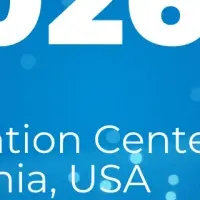
Global Pest Control Market Expected to Surge to $44.3 Billion by 2034
Overview of the Pest Control Market
The pest control market is currently undergoing significant changes, driven by environmental concerns and a growing demand for efficient pest management solutions. According to recent findings by Allied Market Research, the market is projected to reach a staggering $44.3 billion globally by 2034, growing at a compound annual growth rate (CAGR) of 5.4% from 2025 to 2034. This expansion is largely propelled by urbanization, population density, and increased awareness of pest-related health risks.
Key Market Drivers
The surge in demand for pest control solutions stems from several critical factors. Urban areas, marked by high population densities, have become hotspots for pest infestations, leading to increased public concern over potential health threats and environmental impacts. Countries like the U.S., India, and various nations across Europe are stepping up the use of pest control services to safeguard public health, protect agricultural productivity, and comply with stricter hygiene regulations.
Expanding Service Infrastructure
North America has emerged as the largest market for pest control, surpassing both Europe and Asia-Pacific, with a valuation exceeding $30 billion in 2023. This growth can be attributed to stringent regulatory frameworks surrounding pest control chemicals and a rising demand for non-toxic alternatives. Additionally, the expansion of pest management service networks across residential, commercial, and agricultural sectors is enhancing the accessibility and adoption of integrated pest management (IPM) systems. These developments not only make pest control more effective but also promote the use of sustainable practices.
Innovations and Technological Advances
The pest control industry is on the verge of a technological revolution with innovations like AI-driven monitoring systems and automated pest management solutions. Key players, including Rentokil Initial, Terminix, and Rollins, are leading this shift by investing in smart pest control technologies. For instance, Rentokil's acquisition of Terminix strengthens its market position while enhancing capacities for innovative pest management.
This transformation signifies a growing trend towards sustainable practices. Companies are increasingly prioritizing eco-friendly pest control methods, significantly reducing their dependence on traditional chemical treatments. By 2030, Rentokil aims to enhance the use of biological and digital pest control solutions by 50%, showcasing its commitment to environmental sustainability.
Regional Developments
The Asia-Pacific region demonstrates a marked commitment to enhancing public health and agricultural protection through advancements in pest management. Partnerships, such as the one between Rentokil Initial and Fujitec Pest Solutions in Japan, aim to deploy AI-driven pest monitoring systems that will improve pest detection efficiency across urban and industrial locales. Another promising development includes Bayer’s $1.5 billion investment in expanding its biological pest control practices in India and Southeast Asia, aimed at reducing reliance on harmful pesticides in agriculture.
Government Regulations and Initiatives
On the regulatory front, nations worldwide are introducing stricter regulations to mitigate the environmental and health impacts of pest control practices. For example, the European Union’s Sustainable Use of Pesticides Regulation mandates significant reductions in pesticide usage by 2030. Similarly, in the U.S., the Environmental Protection Agency (EPA) has imposed restrictions on certain pesticides, reflecting a broader commitment to protecting ecosystems and promoting biodiversity.
India has embarked on promoting organic pest management methods through its National Integrated Pest Management Initiative, while China targets a 30% reduction in chemical pesticide use by 2035 under its Green Pest Control Action Plan. These regulations are challenging the pest control industry to innovate and adapt to increasingly eco-conscious service models.
Challenges Ahead
Despite the promising growth, the pest control market faces challenges. Seasonal pest activity, environmental fluctuations, and evolving regulations necessitate agile responses from pest management providers. Pest control companies are leveraging technology, such as AI-based monitoring and predictive analytics, to become proactive in managing pest infestations.
Conclusion
The landscape of pest control is set for profound transformation over the coming decade, driven by technological innovation, sustainable practices, and robust regulatory frameworks. With significant investments in research and development, the industry is poised to meet the challenges of increasing global pest control demands while promoting environmental sustainability and public health. Stakeholders are encouraged to remain vigilant and adaptable as they navigate this dynamic market.
Topics Consumer Products & Retail)










【About Using Articles】
You can freely use the title and article content by linking to the page where the article is posted.
※ Images cannot be used.
【About Links】
Links are free to use.